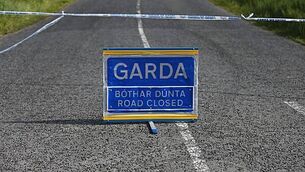Judge erred by 'blaming' armed robber for death of man threatened over alleged drug debt, court hears

Ryan Dunne
A judge fell into error by "blaming" a convicted armed robber for the death of a man who took his own life after being persistently threatened over an alleged drug debt, the Court of Appeal has heard.
Barristers for the State said that Kenneth Kelly (54) had launched “a prolonged campaign” over a number of months to retrieve a €1,000 drug debt, before the “tragic outcome” of the victim committing suicide.
However, defence barristers said that the sentencing judge went too far in drawing a causal link between Kelly and the death of the deceased.
Kelly, of Monaseed Demesne, Gorey, Co Wexford, was sentenced last June by Judge James McCourt at Wexford Courthouse to six years in prison, having pleaded guilty to demanding money with menaces.
The offence related to an incident at Carnew Road, Gorey, on January 31st, 2024, in which he demanded a payment of a drug debt of €1,000.
Two further counts were taken into consideration of an offence contrary to section 2 of the Firearms Act, 1925 as amended by Section 15 of the Firearms Act 1964, and section 3 of the Firearms Act 1971.
These related to the possession of ammunition, namely ball bearings for an air pistol, and possession of a firearm, namely a .177 calibre air pistol.
Kelly had 12 previous convictions.
In launching an appeal against the severity of sentence on Thursday, defence counsel Kenneth Murphy BL submitted that the headline sentence of eight years set by the sentencing judge was excessive and an inadequate reduction was given.
He said that the sentencing court had made reference to the gravity of the crime and the harm done, with Judge McCourt saying that the appellant had just kept on persisting until he got the money, before the injured party in the case ended up dead.
Mr Murphy said that the judge went too far in drawing a causal link between the death of the deceased and Kelly.
He said that Kelly accepted there was a contributing element, but the judge tacked the entire death on the appellant, even though the deceased had mental health difficulties.
Ms Justice Isobel Kennedy said that the motivation behind the crime was having a debt repaid, with the appellant having previous convictions for armed robbery. She said that as threats had been made, the motivation for the offence was “quite sinister”.
Ms Justice Kennedy said that the headline sentence was within the margin of appreciation given the level of aggravating factors, including the appellant’s persistence.
Mr Murphy replied that the headline sentence should have been seven years, followed by a reduction. He said that the judge’s error was blaming the appellant for the death of the deceased, as there was no evidence of causation before the court.
“You’re saying the error is the judge didn’t close his eyes that this unfortunate man committed suicide,” said Mr Justice Maurice Collins, going on to ask if the judge was not supposed to take into account the consequences of what had happened.
Mr Murphy said the judge was given a very emotional victim impact statement, which referred to future fears of what would happen when Kelly was released from prison.
He said the judge declined to engage with a probation report, meaning he never gave Kelly the chance “to put his best foot forward”.
Counsel for the State, Liam Dockery BL said this was a particularly sad case with a tragic outcome, but there was no error in principle by the judge as the headline sentence was correct.
He said that even if it were the case that seven years would have been more appropriate, that would still have been within the judge’s margin of appreciation.
Mr Dockery said that this had been “a prolonged campaign” by the appellant over a number of months, so the headline sentence was appropriate.
He said the appellant was given due credit, with two years taken off the headline which reflected that the judge took into account all the factors.
Ms Justice Kennedy said the court would reserve judgement in the case, with the matter put back to November 20th next.






